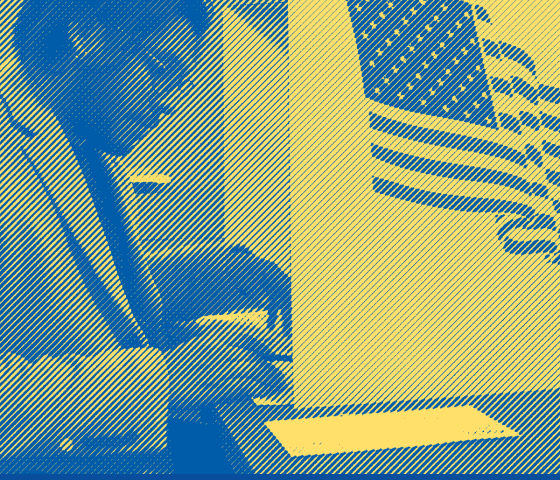The ACLU of Iowa was one of several civil rights and employment rights organizations and law professors to file an amicus brief in support of the City of Waterloo's "Fair Chance/Ban the Box" ordinance. Today, the Iowa Supreme Court filed a decision on the lawsuit contesting that ordinance.
The following statement can be attributed to Shefali Aurora, ACLU of Iowa staff attorney:
"Today’s decision is an important partial win for local efforts to protect against race discrimination in hiring. "Ban-the-box" policies are vital to remedying racial disparities in employment. Otherwise, the existing racial disparities in our criminal justice system are only amplified.
"Importantly, the Iowa Supreme Court agreed with the NAACP's legal arguments, and upheld Waterloo’s requirement that employers not include a criminal record inquiry on any application. The Court also said Waterloo can forbid employers from asking about a criminal record during the application process—including but not limited to during an interview. Instead, the employer is required to wait until after a conditional offer of employment has been made before asking about or making a final hiring decision based on the criminal record.
"This delay in asking about a criminal record doesn’t limit what employers can consider. But the delay does help prevent unfair bias from coming into play so early in the process that people with criminal records are not even considered on their merits.
"Research shows that even though ban-the-box requirements like Waterloo’s don’t control an employer’s hiring decisions, they do successfully increase the hiring rates of people with criminal records because they allow employers to better and more objectively evaluate an applicant’s qualifications before becoming aware of a criminal history. Once they’ve done the objective evaluation, employers are in a better place to determine if the criminal record truly has anything to do with the person’s ability to do a good job at work.
"The Court also found that a number of provisions of Waterloo’s Ban the Box ordinance were preempted by a 2019 state law, which requires state-level regulation of terms and conditions of employment, and only allows cities and counties to regulate in a manner that does not exceed or conflict with state and federal laws, including civil rights laws.
"Today’s decision also in no way upsets existing state and federal civil rights laws, which recognize the disparate racial impact of relying too heavily on criminal records in employment decisions, and requires a legitimate, nondiscriminatory business reason for doing so. Employers continue to be restricted in their ability to base adverse hiring decisions on criminal records by those laws.
"But it is an important call to action for cities around the state to pass ordinances, based on the provisions of Waterloo’s ordinance which the Court upheld today, which delay consideration of a criminal record until after a conditional offer of employment has been made.
"It’s also a call to action for state-wide ban-the-box legislation, so that all Iowans have a fair chance at getting a job, and we can work to reduce the unfair racial disparities in employment that plague our state.
"In Waterloo, the need for this type of law is especially pronounced. Nearly 16 percent of Waterloo's population is African American, the highest in Iowa. The city also suffers from some of the starkest racial disparities in the state and in the nation.
"A 2019 study listed Waterloo as the third-worst city in the country for Black Americans, based on factors such as racial disparities in income, education, health, incarceration, and white-Black achievement gaps.
"The data also showed that Black Waterloo residents earn only half of what their white counterparts make, and 19.7 percent of Black Waterloo residents were unemployed, compared to only 4 percent of white residents."
